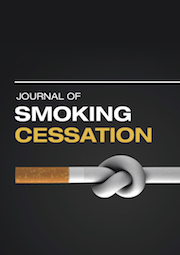Article contents
Improving on the Proven: Increased Efficacy and Reach With Innovations in Use of Therapeutic Nicotine
Published online by Cambridge University Press: 21 February 2012
Abstract
Therapeutic nicotine (TN) has been a mainstay of evidence-based smoking cessation treatment for many years, with established patterns of application. Yet recent research and practice indicates that innovations in how TN is used and applied to new populations can substantially enhance its efficacy and reach, improving upon established approaches to TN use. In this article, we address innovations how TN is used, discussing evidence that starting treatment before the quit day, combining patch with acute TN forms, and continuing TN treatment after a lapse, all substantially improve treatment outcomes compared to current TN practices, with effects sizes in the same range as the basic effect of TN versus placebo. We also review the use of TN in populations interested in smoking reduction as a path to quitting, discussing evidence that TN improves success rates in quitting by gradual reduction, and can also be used for reduction among smokers who are not yet ready to quit, leading to increased cessation rates. The evidence suggests that innovations in how TN is used can have substantial effects on the efficacy and reach of smoking cessation treatment.
Information
- Type
- Articles
- Information
- Copyright
- Copyright © Cambridge University Press 2010
- 1
- Cited by

